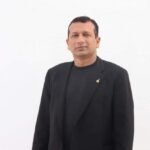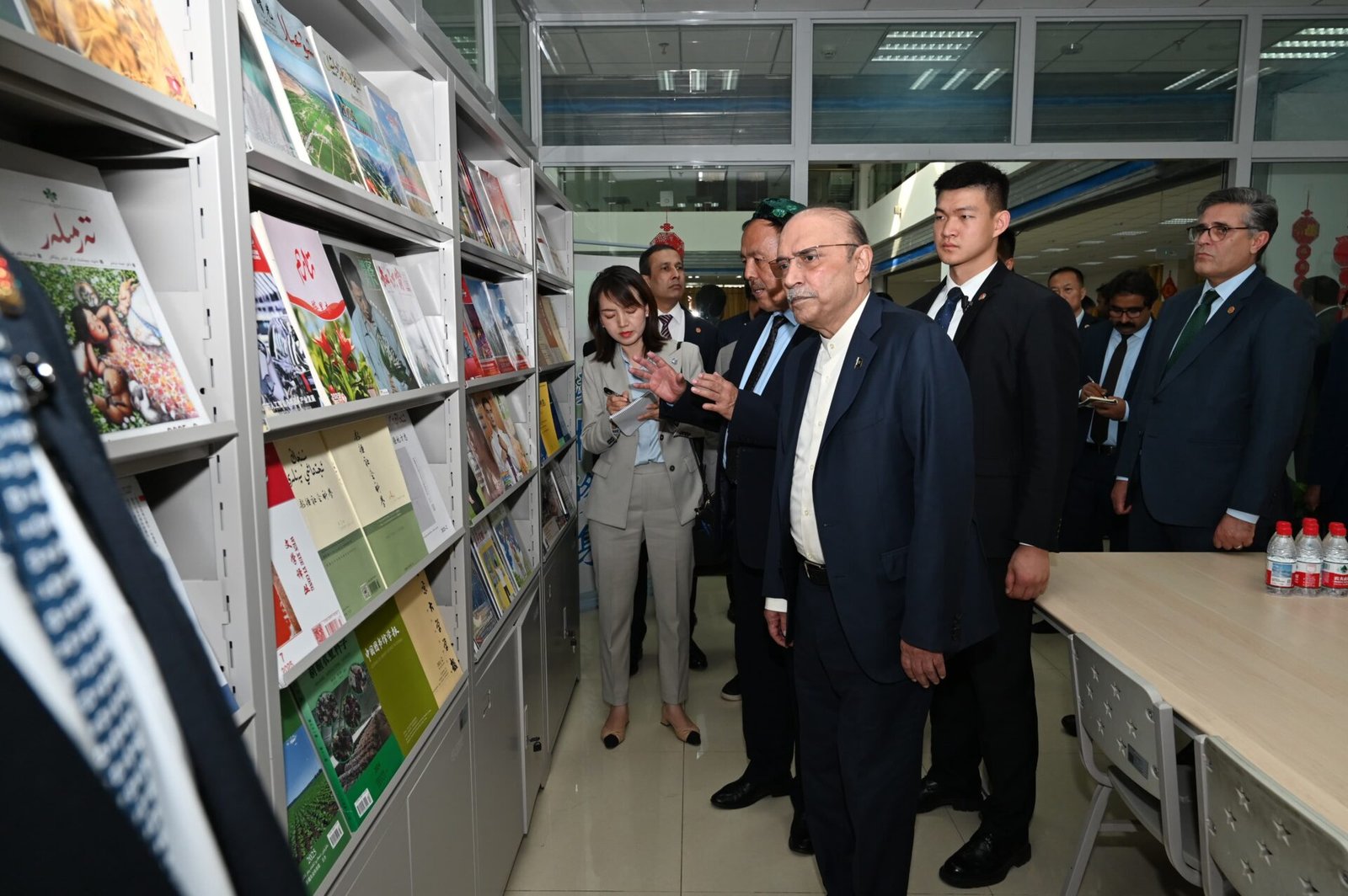Ürümqi (TDI): Pakistan’s President, Asif Ali Zardari, visited the Xinjiang Islamic Institute as part of his 10-day visit to China, where he was received by the President of the institute, Mukhtirei Sifu.
Sifu explained that the institute plays a central role in providing structured theological education and training religious scholars, imams and khatibs for service across Xinjiang.
He highlighted the institute’s efforts to blend religious education with modern learning, noting the importance of preparing students to serve both their faith and society.
The President was informed that the institute offers courses in Quran, Hadith, Islamic jurisprudence, Arabic, theology and general subjects including history, computer literacy, ethics and sciences. The curriculum also includes Mandarin Chinese, civil law and regional religious policies.
The institute has the capacity to host around 1,000 students at its main campus, with affiliated institutes in other parts of Xinjiang.
Read More: IPDS, MU Jointly Organize First Virtual Symposium on China-Pakistan Relations
Facilities include a central mosque, library, lecture halls, classrooms, dormitories and administrative buildings. Students receive scholarships, housing, meals and stipends during their studies.
Since 2001, more than 28,000 graduates of the institute have gone on to serve in religious, educational and administrative roles across the region. The institute also contributes to translation and publication of Islamic texts and assists in Hajj logistics.
President Zardari appreciated the services being offered by the institute for Muslims living in the region and noted the significance of academic and cultural exchanges in building greater understanding between Pakistan and China.
Khalil Hashmi, Ambassador of Pakistan to China, and the Ambassador of China to Pakistan, Jiang Zaidong, were also present during the visit.

Sohail Majeed
Sohail Majeed is a Special Correspondent at The Diplomatic Insight. He has twelve plus years of experience in journalism & reporting. He covers International Affairs, Diplomacy, UN, Sports, Climate Change, Economy, Technology, and Health.



